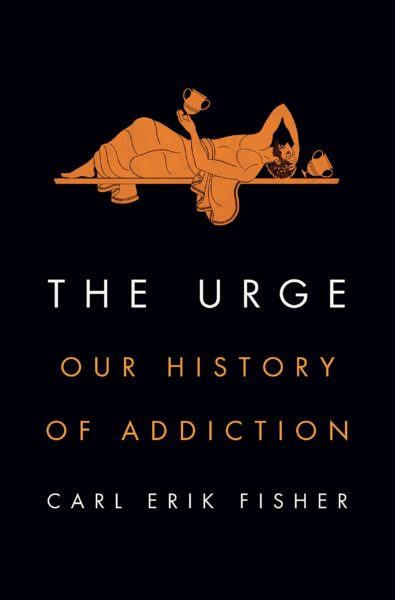
What Can We Learn from an Addicted Doctor?
A hundred years ago you’d be hard-pressed to find an addicted doctor. Not that they didn’t exist, mind you. It’s just that people were loathe to admit they existed. Physicians were meant to be revered, so they best be respected. If that happens to mean treating them like deities or demigods, even better. After all, doctors do hold the power of life and death in the palms of their hands, do they not? To suspect that someone of such awesome responsibility could or would ever descend to the level of alcoholic or drug addict was an affront to Hippocrates himself, as well as every one of the Father of Medicine’s descendants.
Ironically, in those days doctors were one of the few classes of people who had relatively easy access to any kind of addiction treatment. Oh, the treatment wasn’t very successful, but it was largely available. It was also largely kept in house. If the general public found out about addicted doctors, not even the surgeon general could save the trade’s reputation.
Now we know better. In fact, we know better largely because of an addicted doctor: Dr. Robert Holbrook Smith.
Most of you know Dr. Bob and Bill W. co-founded Alcoholics Anonymous. Most of you also probably know that Dr. Bob had to hit dozens of hospitals and sanitariums before he met Bill. You also probably know that he almost didn’t get to be a doctor at all. That’s right, his drinking was so bad that Rush Medical College forced him to stay on two extra semesters and remain fully sober before they’d let him retake his finals and issue a degree. In those days though, covering up for a colleague was just what doctors did.
After Bill helped Bob get it into his head that helping other drunks is the key to sobriety, the Doc finally got sober. That was June 10, 1935. The date’s been celebrated as AA’s birthday ever since.
The Percentage of Addicted Doctors
A survey conducted by the American College of Surgeons (and cited by Reuters Health) found that about 15 percent of surgeons have alcohol abuse or dependency problems. The general population numbers? About nine percent.
“Surgery is a stressful business,” said UCLA’s Dr. Edward Livingston, then with the University of Texas Southwestern Medical Center. “There are people who turn to alcohol to help deal with their stress.”
That makes sense. What doesn’t make sense is that only about 7,200 surgeons out of the 25,000 queried responded to the survey. Furthermore, the latest data dates back a full decade. How much those numbers have risen over the years is anyone’s guess.
Why weren’t more surgeons interested in responding? Why isn’t the American College of Surgeons more interested in addicted surgeons? Could it be a case of still covering for colleagues or because addicted doctors are still anathema to the trade? Both?
Without research, we don’t really know. We do know that at least some addicted doctors are now stepping up and speaking out.
The Addicted Doctor

Take, for instance, Dr. Carl Erik Fisher. Dr. Fisher is a bioethicist, addiction psychiatrist and assistant professor at Columbia University. He’s also the author of The Urge: Our History of Addiction (Scribe, 2022). Unlike the shrinking violets in the above-mentioned survey, this good doctor isn’t afraid to answer questions about his addiction. In fact, he shouted aloud about it from the rooftop of The Guardian.
Okay, so it was the distinguished paper’s pages rather than its rooftop. Still, it is a heady height. The height’s especially heady when you consider the potential repercussions. Remember, doctors generally have patients’ lives in their hands. And that still makes folks more than a mite suspicious about addicted doctors.
Fortunately for Dr. Fisher, the medical establishment still has some rather robust addiction treatment options. Unfortunately for the doc, he ended up being admitted the hard way.
“I went from being a newly minted doctor in a psychiatry residency program at Columbia University to a psychiatric patient at Bellevue, the city’s notorious public hospital,” he writes,. “Locked on the 20th floor dual-diagnosis ward.”
That’s right. Dr. Fisher suffered “a manic episode.” In his case, one that was “induced by weeks of stimulants and alcohol.” It must have been some episode too, because when he “screamed out for help, [his] neighbor called the police.”
The cops took him right to the loony bin.
The Addicted Doctor Faces Addiction
Dr. Fisher thought he’d be going to some specialized rehab for doctors, rather than a place like Bellevue. But Bellevue it was. At least for awhile. Why? Because that’s the kind of place addiction can push a person — doctors included.
“Addiction is a terrifying breakdown of reason,” writes Dr. Fisher. “People struggling with addiction say they want to stop, but, even with the obliterated nasal passages, scarred livers, overdoses, court cases, lost jobs and lost families, they are confused, incredulous and, above all, afraid. They are afraid because they cannot seem to change, despite the fact that they so often watch themselves, clear-eyed, do the very things they don’t want to do.”
And how.
Furthermore, addiction is often explained away as either free choice or total compulsion. If it’s simply a kind of choice, then “people should accept responsibility for their behavior, including punishment.” If it’s a question of involuntary and uncontrollable compulsions, well, “people with addiction deserve compassion and treatment, rather than punishment.”
The good doctor doesn’t buy the dichotomy. Not completely anyway. It’s “unsatisfying.”
“Lived experience contradicts such a stark binary,” he continues, “and many people with addiction feel themselves occupying a confusing middle ground. The thing that is terrifying to most people with addiction is that they watch themselves making a choice even while feeling there is something wrong with the choosing. It is, in other words, an issue of disordered choice: a problem with choice, choice gone awry.”
Ancient Greeks to Contingency Management
So what to do? Well, Dr. Fisher goes from the Ancient Greeks to modern day treatment seeking answers. Aristotle came down on the side of “akrasia,” which is often translated as “weakness of the will”. And blamed it on “emotions or misguided reason.”
Plato, in contrast, “understood the problem of self-control partly as the result of a divided and conflicted self.” An inner feud between “positive moral impulses and irrational, passionate drives.” Desire vs reason.
These days it’s more about diminishing rewards. Addicts will eagerly take the immediate over the delayed, no matter how much they lose in the deal. After all, who knows what tomorrow may or may not bring? But when tomorrow comes and their sick and out of money — or homeless and out of a job — they kick themselves. Hard. WTF was I thinking? Makes for some serious regret.
So specialists are using “contingency management” to try and offset the need for immediacy with the need for security. Give folks a small reward if they’ll hold tight for the bigger payoff. We wrote about these sober incentives. The process seems to be especially effective in treating stimulant abuse. In fact, Dr. Fisher cited a study which found contingency management to be nearly four times more effective.
Negative Contingency Management
Conversely there’s negative contingency management, which is how Dr. Fisher described his treatment.
“I wasn’t totally committed to abstinence at first,” he writes, “but my medical licence was on the line, so I chose not to drink. This powerful contingency is, in large part, why these physician health programs have extraordinary five-year success rates of 75% or higher, eclipsing the effectiveness of essentially all other addiction treatments.”
That said, “some people don’t stop, no matter what the cost. There is still that nagging 25% of people who don’t make it to the five-year mark, for example.” Including some of the “friends and colleagues from Fisher’s physician health program.”
Fisher thinks “those outcomes are a testament not to the power of a simplistic compulsion, but to the complexity of the internal forces that lie beneath the stereotype.”
So do we. Dr. Fisher goes on to discuss his alcoholic parents and grandparents, as well as the inherent “genes, environment [and] trauma,” in addition to “the trauma of everyday life.” He also concludes that addicts and alcoholics drug and drink for one simple reason — the substances do something for them. Unfortunately what they most do is make their problems much worse.
Therein perpetuates a very vicious spiral.
More to the Story — His and Yours
There’s more, of course. Much, much more. But we advise you to click on over to The Guardian to read all about it. Why? Because the story is about more than an addicted doctor (though it is that); it’s the story of what ails too many people to count. And we’d rather count you in than count you out.
Yes, it’s your story too. No matter what you do for a living. And we’d like to see and hear more of it. Most importantly, we’d like you to be able to see and hear more of it. And for the more you get to see and hear to be especially clear.
The only way for that to happen is for you to kick the drink and the drugs to the curb. Leave it by the side of the road, even for a short while; then see and hear how life progresses. We bet good money you won’t want to pick up again. And if you do — so what? The next day you simply start all over again. It’s a process. Dig? So proceed. Please.